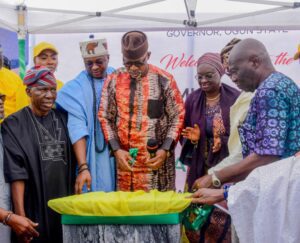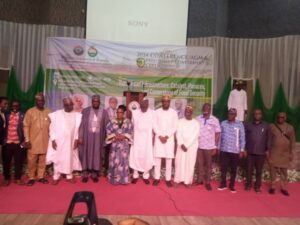
How internet access reduces extreme poverty by 7% in Nigeria, Tanzania — W’Bank reports
…Nigeria’s low data costs hinder expansion of mobile coverage in rural areas — Communication minister
By Sodiq Adelakun
Improved access to Internet coverage in Nigeria and Tanzania has led to a seven percent reduction in extreme poverty, according to the World Bank.
The bank’s new brief, titled “Digital transformation drives development in Africa,” also revealed that Internet access has resulted in an eight percent increase in labor force participation and wage employment.
Over the past five years, Sub-Saharan Africa has seen a remarkable 115 percent increase in Internet users, which has contributed to economic growth, innovation, and job opportunities.
Despite Nigeria having over five million active Internet subscriptions, there is still a need for wider coverage to promote inclusive economic growth.
The Minister of Communications, Innovation, and Digital Economy, Dr. Bosun Tijani, highlighted that while data costs in Nigeria are relatively low, many operators are hesitant to expand coverage outside major cities due to profitability concerns.
The World Bank emphasised that increasing mobile internet usage is crucial for inclusive growth in Africa, as it would create more jobs and support economic recovery in an increasingly digital world.
Despite the encouraging progress, the journey towards digital inclusivity faces challenges, including the affordability of mobile connectivity and a persistent digital gender gap.
The cost of mobile internet remains high, and women are 37 percent less likely to use mobile internet compared to men. These barriers highlight the need for continued efforts to make digital access more equitable and widespread.
The brief read in part, “The region’s digital infrastructure coverage, access, and quality still lag other regions. At the end of 2021, while 84 percent of people in SSA lived in areas where 3G service was available, and 63 per cent had access to 4G mobile coverage, only 22 percent were using mobile internet services.
“The gap between coverage and usage is similarly large for broadband, with 61 percent of people in sub-Saharan Africa living within the broadband range but not using it.
“Affordability of mobile connectivity, measured by the price of one gigabyte of mobile data, is another major constraint. In 2019, the average cost of one GB of mobile internet as a percentage of monthly per-capita Gross National Income was 10.5 percent, which is considerably higher than the 2 percent target recommended by the United Nations Broadband Commission. In addition, in 2021, the median cost of an entry-level internet-enabled handset amounted to more than 25.2 percent of monthly gross domestic product per capita.”
It added, “The region has one of the widest digital gender gaps globally. The greatest disparity exists for internet use, where women are 37 percent less likely than men to use mobile internet according to 2023 GSMA data.
“In 2021, around 470 million people in Sub-Saharan Africa did not have proof of ID, preventing them from fully benefiting from critical public and some private services.”
The World Bank has invested $731.8 million in 11 Digital Development projects in Africa over six years, as part of its commitment to digital development in the continent.
This is part of a larger initiative called the Digital Economy for Africa, which aims to digitally enable every individual, business, and government in Africa by 2030. Overall, the World Bank has allocated $2.8 billion across 24 projects in Africa over the past decade.



